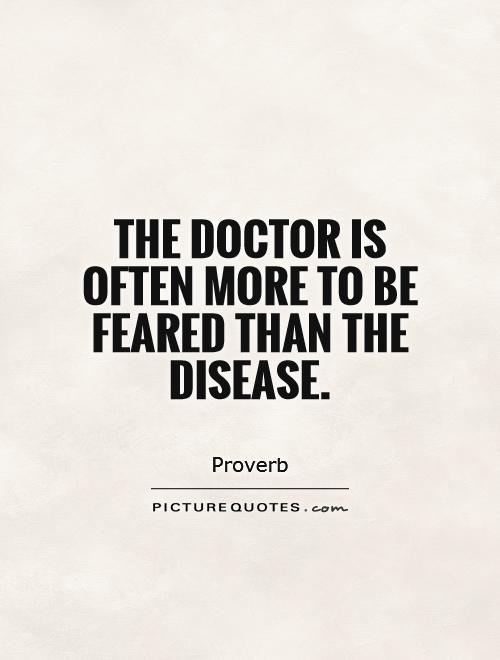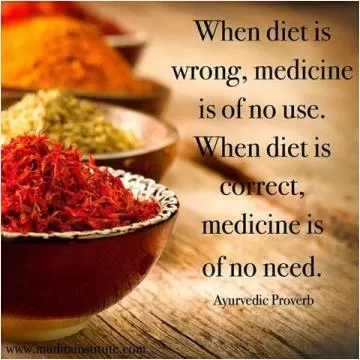The doctor is often more to be feared than the disease

The doctor is often more to be feared than the disease
The proverb "The doctor is often more to be feared than the disease" speaks to the idea that sometimes the cure or treatment for an illness can be more daunting or harmful than the illness itself. This proverb highlights the fear and anxiety that can come with seeking medical help, especially when the treatment involves invasive procedures, strong medications, or uncertain outcomes.One reason why the doctor may be more feared than the disease is the uncertainty that comes with medical treatment. When faced with a diagnosis, patients may feel overwhelmed by the unknowns of their condition and the potential side effects of treatment. This fear can be exacerbated by the complexity of modern medicine and the rapid advancements in technology, which can make it difficult for patients to fully understand their options and make informed decisions about their care.
Additionally, the fear of the doctor may stem from a lack of trust in the medical system or concerns about the motivations of healthcare providers. Patients may worry about being overmedicated, misdiagnosed, or subjected to unnecessary tests and procedures. This lack of trust can lead to feelings of vulnerability and helplessness, making the doctor seem like a threatening figure rather than a source of support and healing.
Furthermore, the fear of the doctor may also be influenced by past experiences with healthcare providers or negative perceptions of the medical profession. Patients who have had negative interactions with doctors in the past, or who have heard stories of medical errors or malpractice, may approach medical treatment with caution and skepticism. This can create a barrier to seeking care and lead to delays in diagnosis and treatment, ultimately worsening the patient's condition.












 Friendship Quotes
Friendship Quotes Love Quotes
Love Quotes Life Quotes
Life Quotes Funny Quotes
Funny Quotes Motivational Quotes
Motivational Quotes Inspirational Quotes
Inspirational Quotes